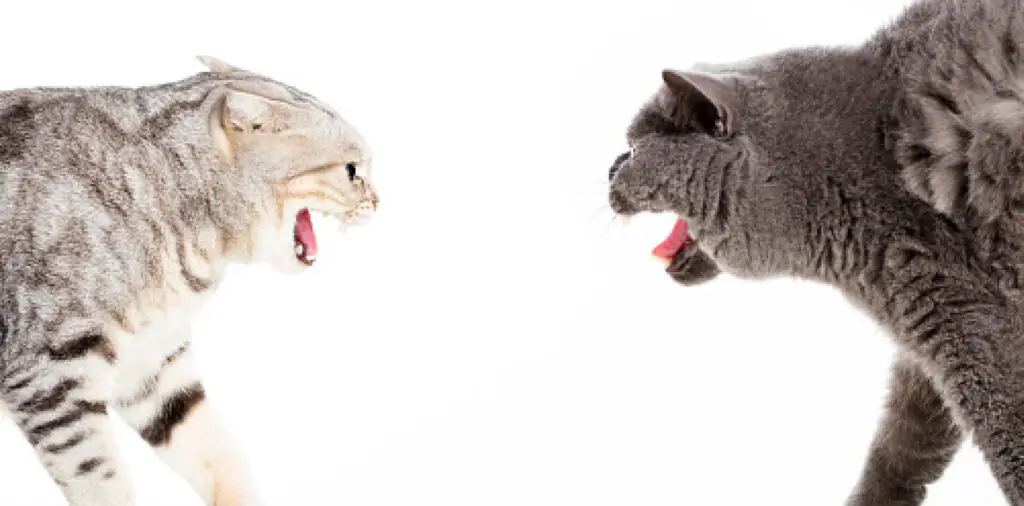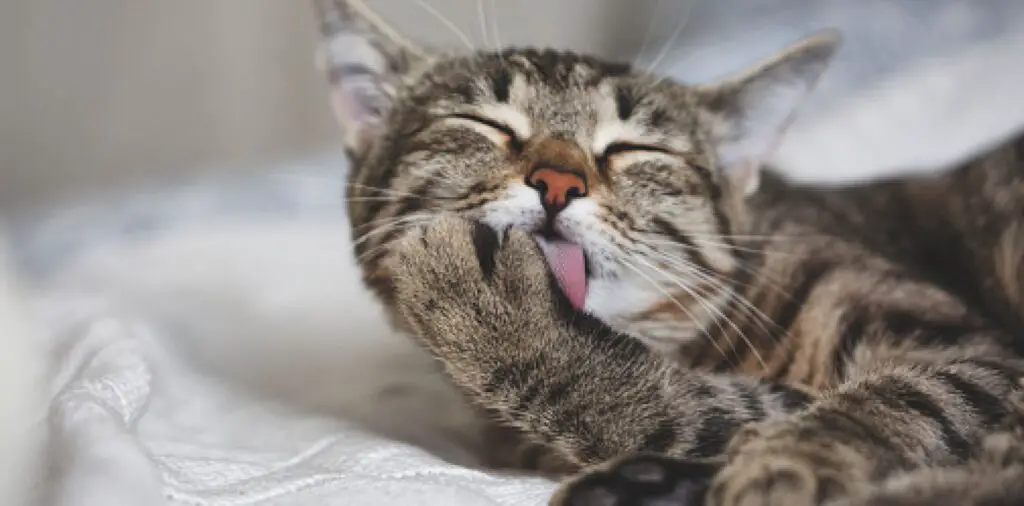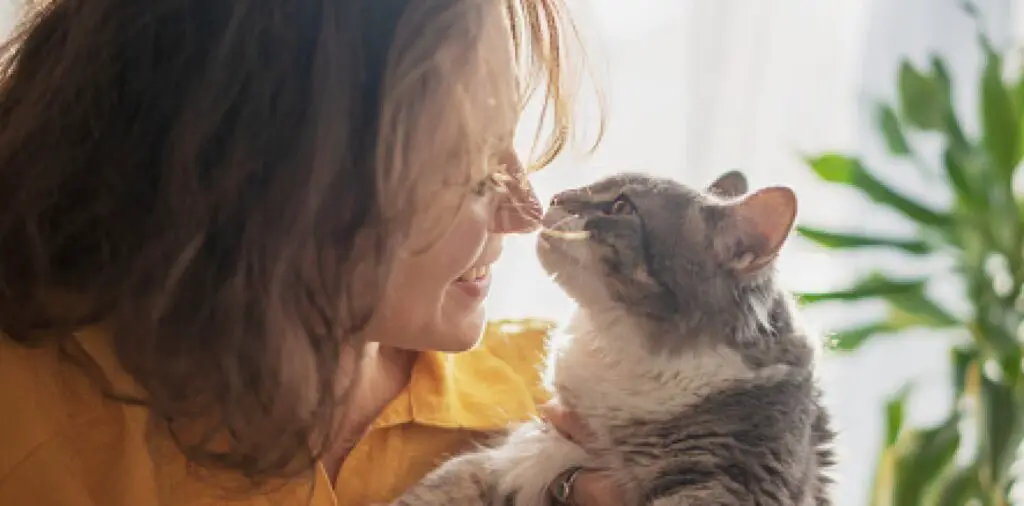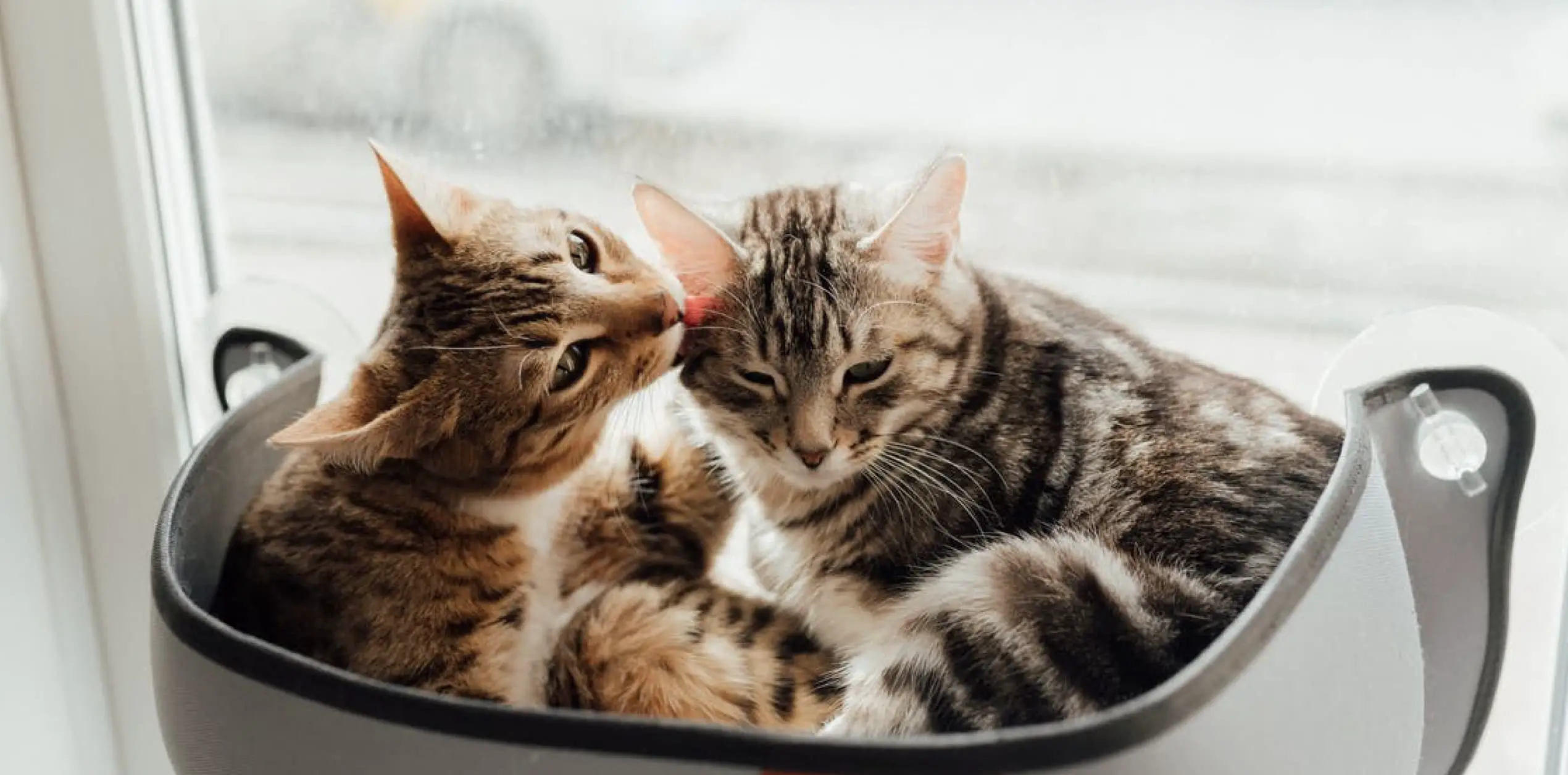It’s possible that if you’ve ever had more than one cat, you’ve noticed behavior in which one cat will lick and groom another on occasion. You’ll be smitten if one of your cats does this. As a result, you’re probably wondering why they’re doing it, even though it’s adorable.
Why Do Cats Lick Each Other? There are a variety of reasons why cats lick one another. Something more complicated could be going on, but they may be just getting to know each other better. It’s called allogrooming, when cats lick and groom one another. It doesn’t matter why this is happening; we’ve got the answer here. Please continue reading to learn more about cat behavior.
Do Cats Groom Each Other by Licking?
When cats are in a happy, comfortable social group, they groom each other. They do it to blend their scents, be closer to one another, and provide comfort and love. Cats in the same household or colony do it to strengthen their close, loving bond. There is also a sense of reciprocity, which is most evident when they groom each other’s faces, heads, ears, and chins. Moreover, it takes a trusting cat to let another cat groom a vulnerable area like the head.
Why Do Cats Lick Each Other?
Cats will lick each other as part of allogrooming or social grooming between members of the same species. Cats will do this to show affection, establish social order, strengthen bonds, or simply clean hard-to-reach areas. Amy Shojai, a certified animal behaviorist, tells more.
Grooming
Even though domestic cats enjoy maintaining their hygiene by self-grooming daily, they cannot clean every area of their bodies. Instead, they use their paws to reach some places, and their bodies are pretty agile. Nonetheless, they are unable to clean everything. They may require assistance from a friend, sibling, or pet parent. It is the most common reason for mutual grooming. It’s helpful to have another cat’s tongue and teeth to help untangle matted fur, remove dust particles, and comb stray hairs.
Sign of Affection
Licking is one of the many ways cats express their affection for someone or something. Consider it a form of kissing. Furthermore, two cats grooming each other is a bonding experience. They exchange scents, assist each other in cleaning out of reach areas, and express how much they enjoy each other’s company.
Motherly Instincts
If your female cat has ever had a litter, you know that their mother begins licking them as soon as the kittens are born. Initially, she is removing all of the icky stuff from their bodies. Then she begins to warm and soothe them.
Because of maternal instincts, some cats may lick each other. Instead, they’ll do it to provide protection, comfort, and peace to their feline housemates.
Dominance
Cats’ use of social grooming aids in the development of strong social bonds. In a study on social grooming in cats, researchers discovered that cats at the top were more likely to groom cats lower down in rank. They were also more likely to engage in aggressive behaviors such as snarling and trying to tail and outrun other cats following grooming sessions.
Why Do Cats Fight After Licking Each Other?

Cats who groom each other will occasionally “play fight.” This could be a case of over-stimulation. When anyone touches cats for an extended period, they can become irritable or stressed. As a result, if one cat grooms another for an extended period, the two cats may begin to fight. So be thankful if you notice your cats grooming each other. This indicates that your cats are bonded and have an ‘e-meow-tionally’ healthy relationship.
Do Only Male Cats Lick Each Other?
Allogrooming happens regardless of a cat’s gender – or the cat’s gender combination. Male and female cats both groom other cats, though male cats groom other cats more than female cats. Male and male cats groom each other, and female and female cats lick each other clean during allogrooming sessions.
Having said that, male and male allogrooming sessions are the most common, with female and female being the least common allogrooming gender combination.
Why Do Cats Lick Themselves?

Cats can spend up to 24% of their time grooming themselves. They’ve got good reasons. Grooming aids in:
Cleaning Themselves
After giving birth, the first task of the mother cat is to remove the protective sac, followed by licking the newborn offspring with her rough tongue to make breathing easier. Later, when the kitten starts nursing, she will lick its hind end to encourage it to unload the waste products. Kittens begin self-grooming when they are a couple of weeks old, imitating their mothers.
To Heal Wounds
Painful or inflamed areas, such as wounds, will be instinctively licked by cats. Excessive licking can lead to infection and delay the healing of wounds, even though it may be beneficial to the cat to lick dirt and blood away.
To Keep Predators at Arms’ Length.
The sense of smell in cats is fourteen times more acute than in humans. Like most predators, Cats rely on scent to locate and catch prey. To keep her young kittens hidden, a mother cat in the wild will try to remove the proof of her feedings. After she’s finished nursing, she’ll give them a good scrub. Then, when a cat finishes eating, it’s common to see it scratching around the dish on the floor to clear it out.
Taking Care of the Fur and Skin
Using their rough tongues, adult cats spread the sebum from their sebaceous glands throughout their hairs to keep their coats shiny and healthy. Self-grooming helps keep their fur clean and free of dirt and parasites like fleas. Furthermore, cats’ saliva acts as a cooling agent in hot weather because they lack sweat glands.
To Enjoy Themselves
Grooming is a pleasurable experience for cats, and they appear to do it purely for grooming. Motivated by a desire to share an enjoyable experience, they will groom one another and their human companions.
When Grooming Turns Into a Frenzy
Excessive cat grooming can lead to hairless patches and torn skin if it goes unchecked.
When you are nervous, you know you feel the need to bite nails. Cats are no exception to this rule. When people are under a lot of pressure, they tend to over-groom. As a rule, cats hate change. Various life events, including the birth of a child, the death of a loved one, or even the simple act of moving furniture, can trigger over-grooming. Before diagnosing stress, don’t rule out physical causes like flea bites, itchiness, or ringworm caused by allergies.
Why Do Cats Lick Humans?

To Say “I Love You”
Licking is a common way for indoor cats to show love and as a means of grooming. Your cat, for example, may develop a social bond with you, other pet cats, or other pets by licking them. When they were kittens, your cat’s mother may have licked them to groom them and show affection, explaining some of this behavior. Many cats continue to display this behavior of licking their owners to express their feelings of love and appreciation into adulthood.
To “Mark You As Their Own”
There are various ways cats “mark you as their own,” including the licking as one method. They may also mark their territory by rubbing their cheeks together or scratching (and, regrettably, spraying). So if your cat licked you, congratulations, now you belong to them.
To Make You Look Your Best
Your cat might not know that licking you isn’t helping you “clean,” it is an entirely natural way to show their affection. Mamma cats groom their babies to teach them how to groom themselves, as well as for the sake of showing them love and creating a solid bond between the two of them.
Your cat may be trying to play the role of “allo-groomer” by licking you to clean you and establish your place in the group.
To Have a Go at Something Different
Your cat may be licking you because they’re curious about what they’re smelling or tasting on your skin. Or your cat likes the taste of anything that has been on your skin for a long time. The salty residue left by your sweat may be what your cat is trying to eat when it’s hot outside, or you’ve been exercising.
Even though cats’ tongues are designed for grooming, they have a much more muted sense of taste than humans, which is interesting. For example, people believe that cats are the only mammal species that cannot detect sweet flavors.
As a Means of Getting Your Focus
It’s also possible that your cat is licking you because they want to get your attention. If your cat wants your attention, it will lick you to get it. It is how cats communicate their needs to their owners. So a cat licking to get your attention is no different than a cat pawing or meowing at you.
To Relieve Stress or Anxiety
Finally, if your cat is stressed or anxious, it may lick you. If you notice your cat constantly licking you or itself, it could signify a medical issue.
Final Words
Now you know why cats lick each other: it appears to be a sign of social acceptance and a desire to connect with the other cat. So it’s rare to see a cat asking for grooming from a stranger.
Cats usually lick other cats that belong to the same litter. For example, allogrooming may be motivated by a practical need for assistance with bathing. It usually involves the head and neck, which are difficult for many people to reach. For example, the dominant cat in the household will frequently groom the lower-ranking cats to reinforce his position in the hierarchy. So next time you see cats licking each other or you, you know they are marking territory and saying you belong to me, cat style.
